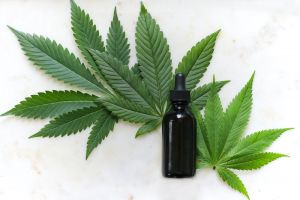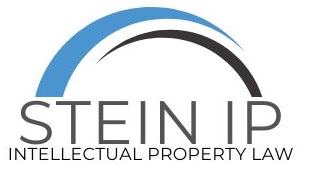- HOME
- > Blog Main Page
- > Food Products Containing CBD Cannot Seek Trademark Protection
Food Products Containing CBD Cannot Seek Trademark Protection
By Shuyu Wang
The Trademark Trial and Appeal Board (TTAB) recently affirmed a decision by the United States Patent and Trademark Office (USPTO) to refuse the registration of a mark for a hemp oil product containing cannabidiol (CBD).[1] The refusal was based on the analysis that the applicant’s use of the mark for its goods was unlawful under federal law regulating cannabis products.
Applicant, Stanley Brothers Social Enterprises, LLC (Stanley Brothers), sought registration of the mark CW for “hemp oil extracts sold as an integral component of dietary and nutritional supplements.” Its goods contain cannabidiol (CBD), a substance extracted from the cannabis plant that is regulated under the Food, Drug & Cosmetics Act (FDCA) as a drug.[2] The examining attorney refused this registration on the ground that Applicant’s goods were illegal under the FDCA and the federal Controlled Substances Act (CSA), and Applicant appealed to the TTAB to contest this decision.[3]
The core issue at appeal was whether Applicant’s goods were illegal under the FDCA and CSA, which required the TTAB to look at the nature and intended uses of the goods. Applicant developed a strain of cannabis which was high in CBD content but low in tetrahydrocannabinol (THC) content. A high concentration of CBD was proved to be helpful for treating childhood epilepsy seizures, while THC would make a user psychoactive. The low THC content in Applicant’s goods would help control the psychoactive caused by the substance.[4] However, Applicant did not market its goods as a treatment for childhood epilepsy only, but claimed that its goods could be used “to promote mind and body wellness.”[5]
The examining attorney found that Applicant’s goods fall within the CSA’s definition of “marijuana,” which is illegal to “manufacture, distribute, or dispense.”[6] However, Congress created an “industrial hemp” exception from the CSA’s prohibitions in the Agricultural Act of 2014 (the “2014 Farm Bill”), which was subsequently expanded in the Agriculture Improvement Act of 2018 (the “2018 Farm Bill”). The Industrial Hemp Provision allows the growth and cultivation of cannabis products with a THC concentration of more than 0.3 percent.[7]
Applicant provided evidence showing that its hemp oil products satisfied the conditions under the Industrial Hemp Provision, but the TTAB found its argument of the Industrial Hemp Provision exemption misplaced. The exemption permits the growth or cultivation of industrial hemp, but not the distribution or sale of CBD in food products. Thus, this exemption does not conflict with the FDCA’s prohibition on offering food added a drug, i.e., CBD in this case.[8]
Moreover, the TTAB found Applicant’s products fall within the FDCA’s definition of “food,” which reinforces the rationale that Applicant’s hemp oil products cannot escape the FDCA’s regulation. “Food” under the FDCA includes “articles used for food or drink for man or other animals. The records show that Applicant’s good is recommended to be used in recipes for beverages and promoted as “dietary supplements,” which is deemed to be a food within the meaning of the FDCA.[9]
In short, Applicant’s sale and distribution of its hemp oil products as dietary and nutritional supplements violate the FDCA’s prohibition, which forms the ground of rejection of a trademark application for an unlawful good.[10]
What CBD-Related Products Can Be Trademarked?
In re Stanley Brothers provides only one scenario of trademark refusal based on the violation of the FDCA. It does not suggest that all CBD-related products cannot seek trademark protection. In fact, following the 2018 Farm Bill that excludes “hemp” with a THC concentration less than 0.3 percent from controlled substances under the CSA, the USPTO issued an examination guide in May 2019, clarifying the examining process covering CBD-related products.
The USPTO Examination Guide 1-19 acknowledges that “hemp” is no longer a per se ground for refusal of trademark registration.[11] Nevertheless, the timing of filing an application for CBD-related products matters. The USPTO clarifies that trademark applications filed before December 20, 2018 for CBD-related products will be refused due to the violation of the CSA, because such applications do not have a valid basis for use in lawful commerce at the time of filing. But in light of the 2018 Farm Bill, the USPTO will provide such applicants the option of amending the filing date to overcome the CSA refusal ground.[12]
That provided, the USPTO emphasizes that not all “hemp”-derived products are lawful.[13] For example, the FDCA still prohibits using “hemp” in foods or dietary supplements, and the In re Stanley Brothers decision is in accordance with this Examination Guide. Under the new guidance, several CBD-related products have successfully registered a trademark, including:
· US 6115812––Mark “EVERYDAY. SIMPLE.” for electric vaporizers for the ingestion and inhalation of CBD derived from “hemp”;
· US 6115840––Mark “HEMPLILY” for bath bombs containing CBD derived from “hemp”;
· US 6119610––Mark “JSK NUGGS” for cigar flavorings containing water-based CBD derived from “hemp.”
Patenting CBD-Related Products
We posted an article in April discussing patenting cannabis in the US. Unlike trademark registration, a patent applicant is not required to prove that the CBD-related product is lawfully used in the US.[14] However, a CBD-related invention still needs to satisfy all registration requirements under the U.S. Patent Law.
For instance, a patent for cannabis extracts can face an eligibility challenge. In United Cannabis Corp. v. Pure Hemp Collective Inc., United Cannabis Corporation (UCANN) sued Pure Hemp for patent infringement, while Pure Hemp challenged UCANN’s patent’s validity.[15] UCNAA obtained a patent for a cannabis extract comprising of different ingredients, each with a specific concentration, which is claimed to overcome previous limitations on treating pain and various medical condition.[16] The District Court for the District of Colorado applied the “Alice” Patentability Test, which first requires the court to determine whether the claims are directed to a patent-ineligible concept, including laws of nature, natural phenomena, and abstract ideas.[17]
Applying the test, the court noted that the claims at issue specified threshold concentrations of cannabis-related chemicals in liquid form. The challenger, Pure Hemp, failed to prove that such precise concentrations of ingredients occur in nature, and the court concluded that UCANN’s liquid formulation by itself is novel. The court found UCANN’s formulation is directed to a “non-naturally occurring delivery method of naturally occurring chemicals in non-naturally occurring proportions and concentrations,” and therefore it is not ineligible under the Alice test.[18]
The expansion of legal usage of cannabis-related products in the US has made it possible to obtain intellectual property protection for the cannabis industry, but trademark or patent applicants should always keep in mind the nature and uses of their CBD-related products in relation to federal laws. After all, both trademark and patent registrations are fact-oriented processes that require close examinatio
[1] In re Stanley Brothers Social Enterprises, LLC, TTAB Serial No. 86568478 (June 16, 2020).
[2] Id. at 1.
[3] Id. at 1-2.
[4] Id. at 2-3.
[5] Id. at 3.
[6] Id. at 4.
[7] Id. at 5-6.
[8] Id. at 12-13.
[9] Id. at 13-14.
[10] Id. at 16.
[11] USPTO Examination Guide 1-19 at 1-2 (May 2, 2019). Contrasting with “hemp,” “marijuana,” i.e., cannabis product with a THC concentration more than 0.3%, violates federal law and is still a per se ground for refusal of trademark registration.
[12] Id. at 2.
[13] Id.
[14] Clinton South & Brian Shortell, Patenting Cannabis: Possibilities and Pitfalls, IPWatchdog (Feb. 7, 2020), https://www.ipwatchdog.com/2020/02/07/patenting-cannabis-possibilities-pitfalls/id=118615/.
[15] United Cannabis Corp. v. Pure Hemp Collective Inc., 2019 U.S. Dist. LEXIS 66092, at *5 (D. Colo. Apr. 17, 2019).
[16] U.S. Patent No. 9,730,911 (filed Oc. 21, 2015).
[17] United Cannabis Corp. v. Pure Hemp Collective Inc. at *5.
[18] Id. at *15-16.

TAGS:
RECENT POSTS
